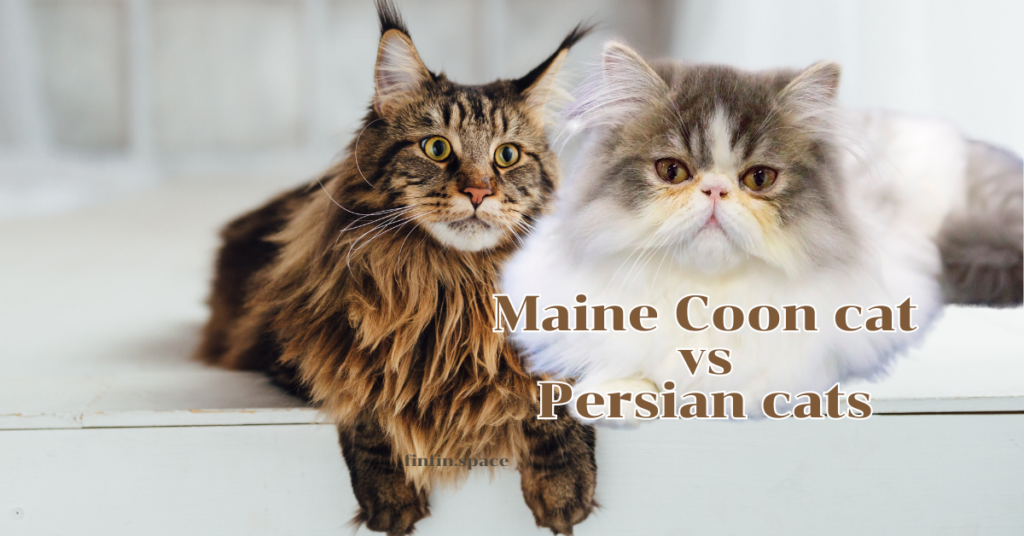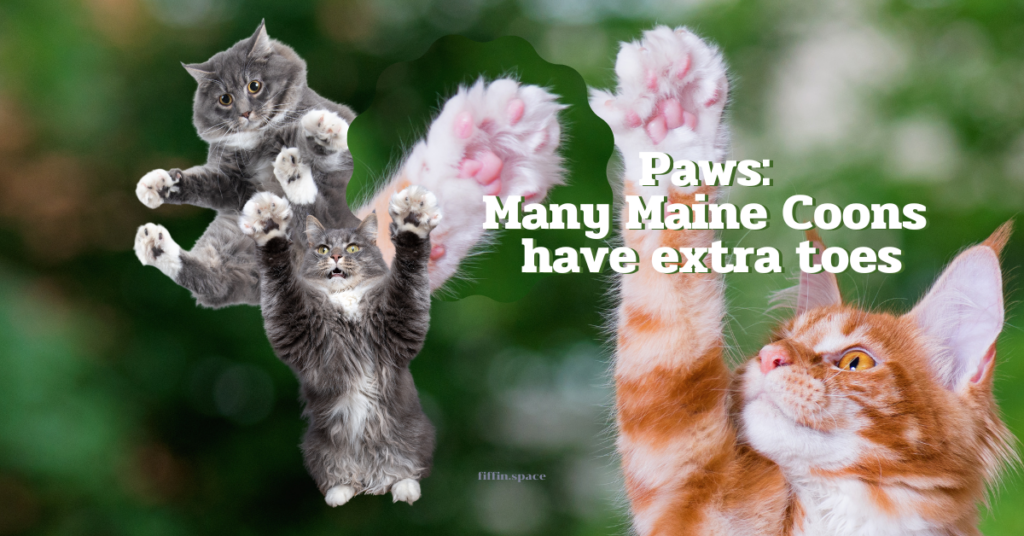The Siberian cat breed is a majestic and ancient breed that has captured the hearts of cat enthusiasts worldwide. Known for its stunning coat and friendly personality, the Siberian cat has a fascinating history and unique traits that make it a popular choice among pet owners. This comprehensive guide will explore the Siberian cat’s origin, physical and behavioral characteristics, temperament, care requirements, and much more. If you’re considering adopting a Siberian cat or simply want to learn more about this captivating breed, this article is for you.
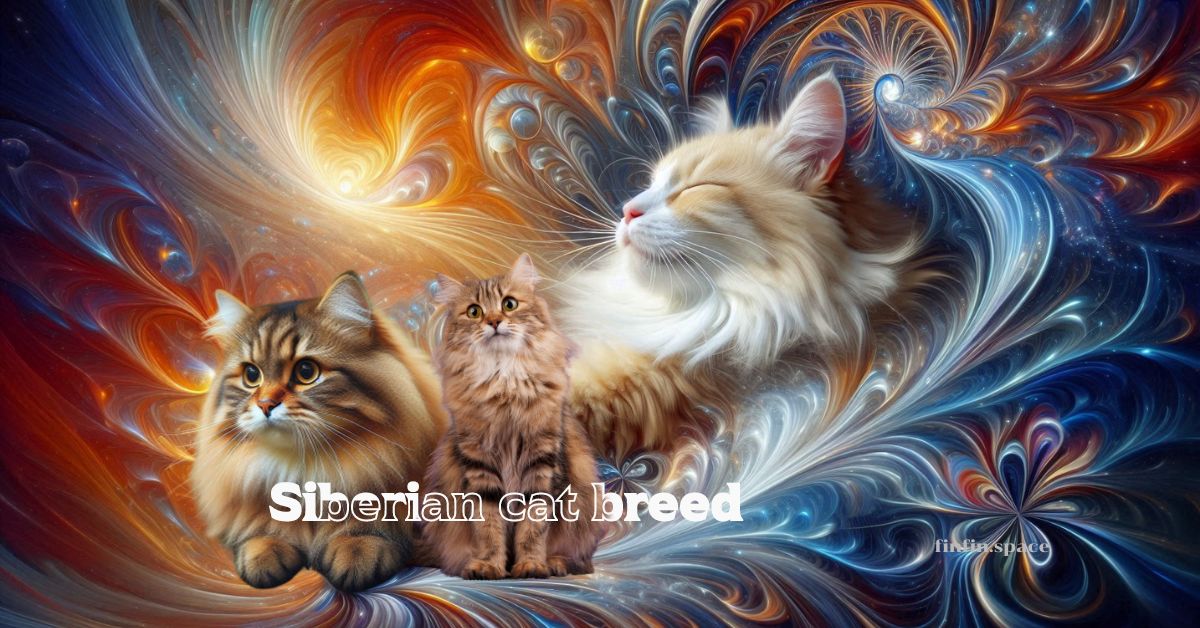
Contents
Origin of the Siberian Cat Breed
The Siberian cat is a breed that hails from the cold and harsh climate of Siberia, Russia. Dating back at least 1,000 years, this breed is one of the oldest and most revered in Russian culture. Siberians were often used as farm cats to protect grain stores from rodents due to their excellent hunting skills. These cats were relatively unknown outside of Russia until the late 20th century when they began to gain international popularity.
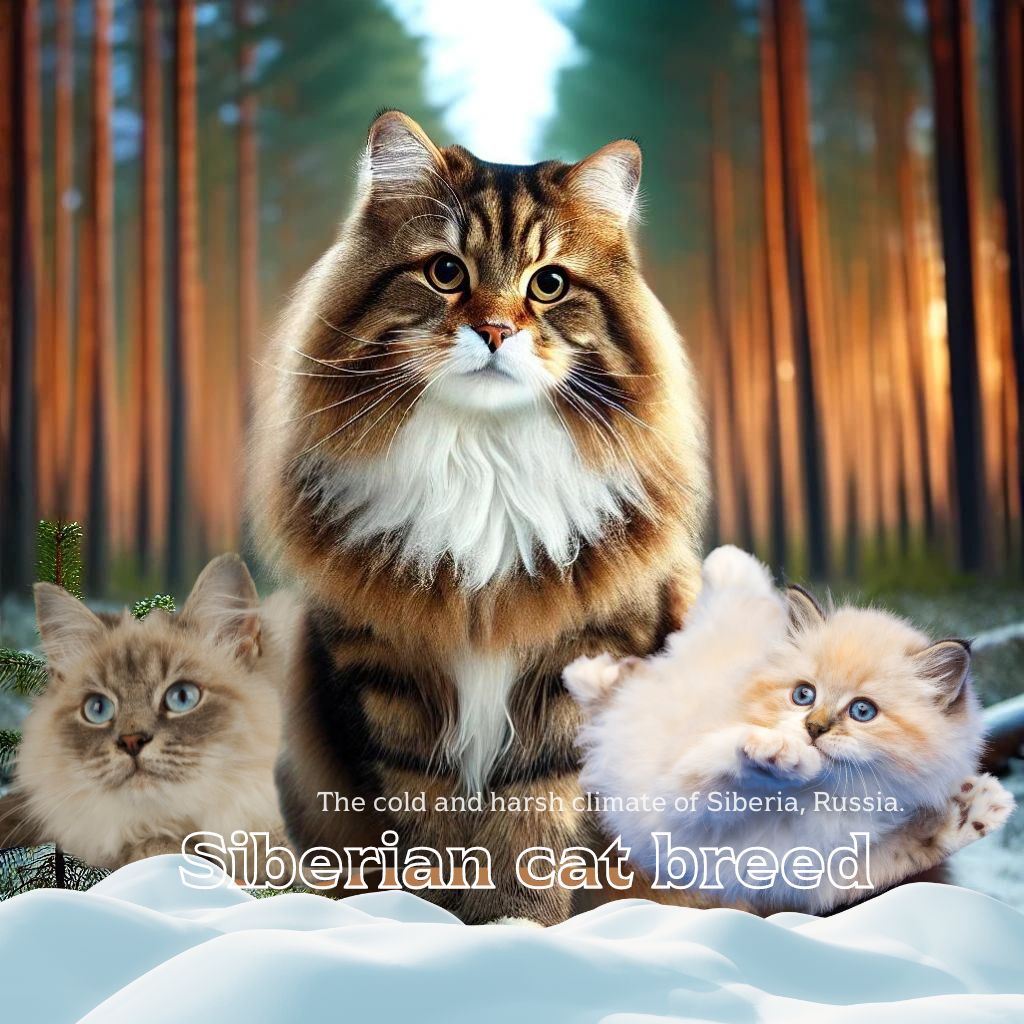
Siberian Cat Physical Characteristics
Siberian cats are large, robust felines with a muscular build. They typically weigh between 8 to 17 pounds, with males generally being larger than females. The breed has a dense, semi-long coat that comes in a variety of colors and patterns. The thick fur helps them survive in cold climates, and their bushy tails are often wrapped around their bodies for added warmth. Notable features include their large, expressive eyes, rounded ears, and tufted paws.
Behavioral Characteristics
Siberian cats are known for their playful and affectionate nature. They are intelligent and curious, often enjoying interactive toys and puzzles that challenge their minds. Siberians are also very agile and love climbing, making them an excellent fit for homes with cat trees or vertical spaces. Unlike many other breeds, Siberians are relatively quiet, though they may chirp or trill when they want attention.
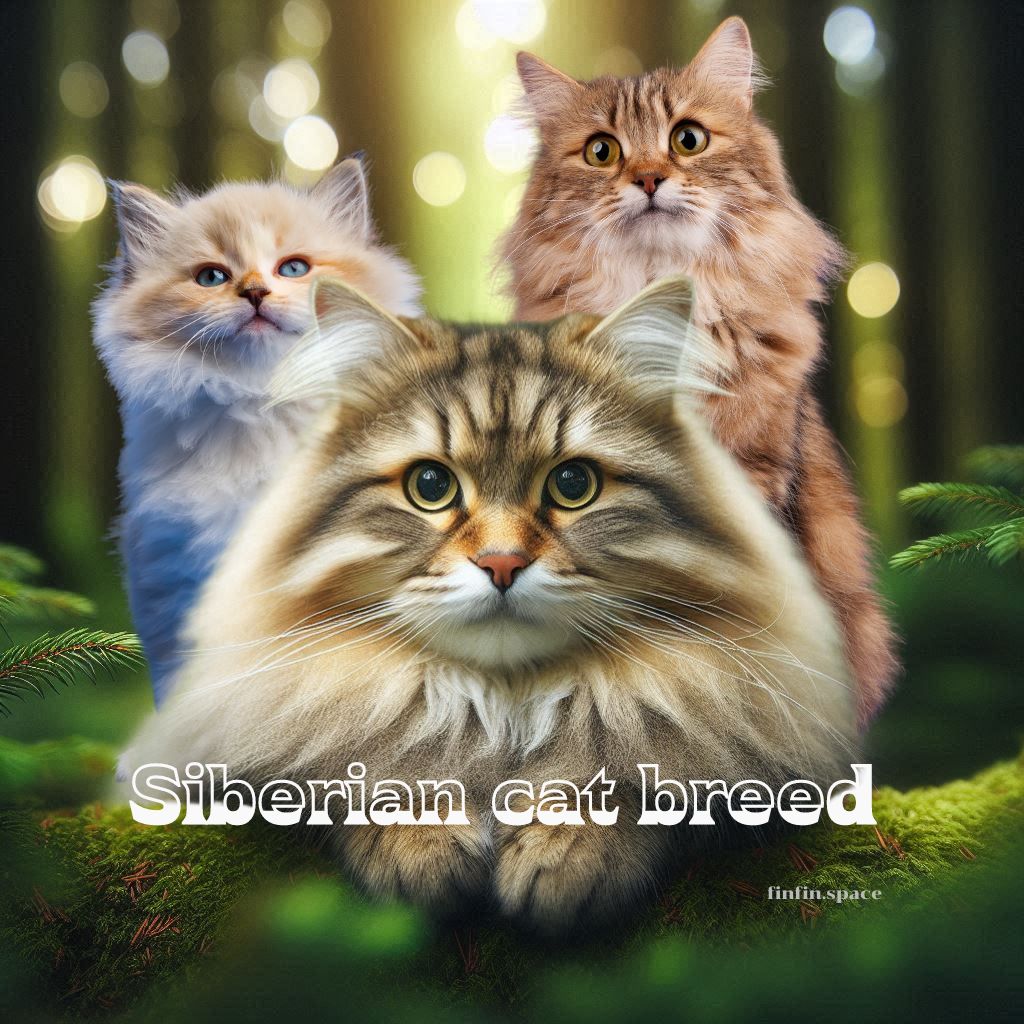
Siberian Cat Temperament
Siberian cats have a calm and friendly temperament. They are highly social animals that form strong bonds with their human companions. Unlike more aloof cat breeds, Siberians enjoy being around people and often follow their owners from room to room. They are known to be gentle and easygoing, making them a good fit for families. While they are affectionate, they are not overly demanding of attention and are comfortable entertaining themselves when necessary.
Temperament with Children and Other Pets
Siberians are generally great with children and other pets, including dogs. Their gentle nature makes them patient with younger family members, and they tend to enjoy the company of other animals. However, like all cats, proper socialization from an early age is essential to ensure positive interactions. Siberians are known to be adaptable and can adjust to new environments and routines relatively easily.
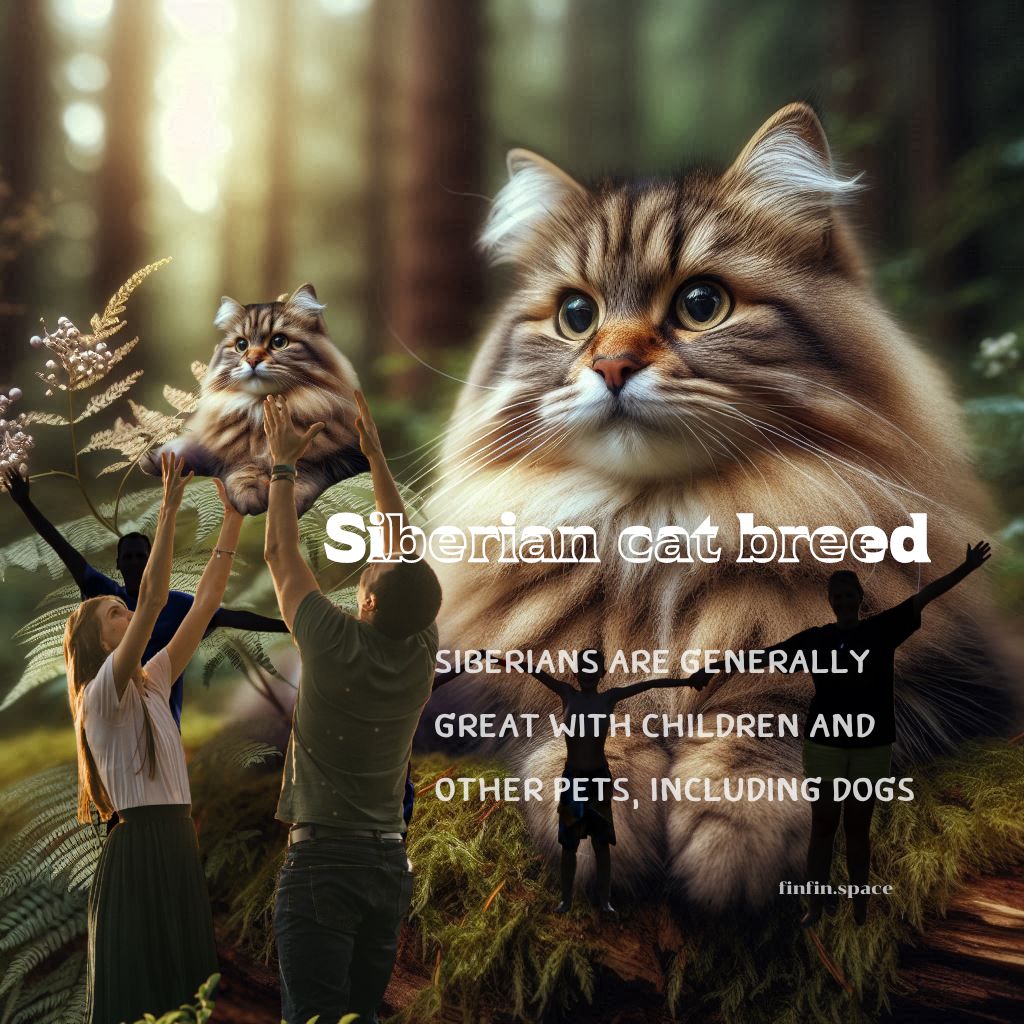
Care and Grooming
While Siberian cats have a thick, luxurious coats, they do not require as much grooming as one might expect. Their fur is somewhat resistant to matting, but regular brushing—about once or twice a week—is still necessary to keep their coat in good condition. During shedding seasons (spring and fall), more frequent brushing may be needed. In addition to coat care, routine grooming like nail trimming and dental hygiene is important to maintain their overall health.

Learning and Socialization
Siberian cats are highly intelligent and can be trained to perform simple tasks or tricks. They are quick learners and enjoy interactive play that stimulates their minds. Positive reinforcement techniques, such as treats and praise, work well when training a Siberian. Early socialization is key to ensuring they develop into well-adjusted adults. Exposing them to various people, environments, and experiences as kittens will help them become more confident and well-rounded cats.
Hypoallergenic Siberian Cat Breed
One of the most appealing features of the Siberian cat is its hypoallergenic qualities. While no cat is completely hypoallergenic, many people with cat allergies report fewer reactions around Siberians. This is because they produce lower levels of the Fel d 1 protein, the allergen responsible for most cat allergies. However, potential owners with allergies need to spend time around the breed before adopting, as individual reactions can vary.

FAQs
Are Siberian cats good for families?
Yes, Siberian cats are known for their gentle and friendly nature, making them an excellent choice for families with children or other pets.
Do Siberian cats require a lot of grooming?
Siberians have a dense coat, but they are relatively low-maintenance. Weekly brushing is usually sufficient, though more frequent grooming may be needed during shedding seasons.
Are Siberian cats really hypoallergenic?
Siberian cats produce lower levels of the Fel d 1 protein, which may make them a better option for people with cat allergies. However, individual reactions vary.
Summary
The Siberian cat is a well-rounded breed that offers a unique combination of intelligence, beauty, and hypoallergenic potential. Originating from Siberia, these cats have evolved to survive harsh conditions while maintaining a friendly and gentle temperament. They are adaptable to families, homes with other pets, and individuals who are looking for a playful yet calm companion. With proper care and socialization, a Siberian cat can make a loving and loyal addition to any household. Whether you’re looking for a loving pet to cuddle with or a playful companion to keep you entertained, the Siberian cat has it all.

